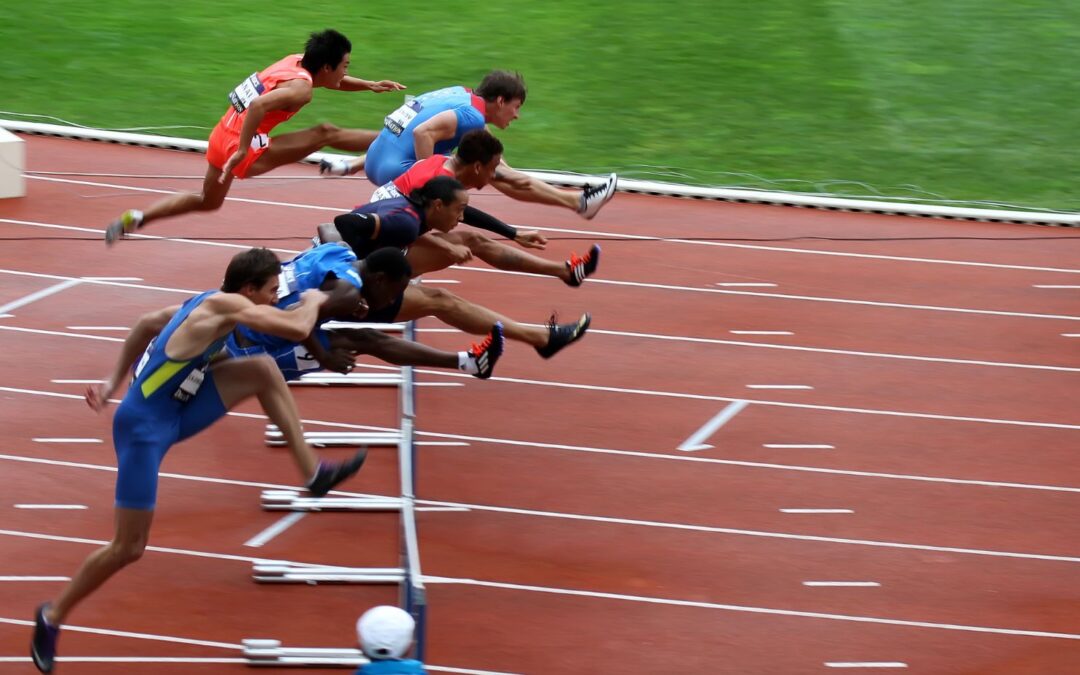The Origins of Sporting Events and Betting in Ancient Civilizations
The origins of sporting events and betting can be traced back to ancient civilizations across the world. From the Olympic Games in ancient Greece to the chariot races of the Roman Empire, competitive athletic events have captivated audiences for millennia.
In ancient Greece, the Olympic Games were a quadrennial religious festival that featured a variety of sporting competitions, including wrestling, running, and equestrian events. These games were closely tied to Greek religious and cultural traditions, with winners often receiving laurel wreaths or other symbolic prizes.
Similarly, ancient civilizations in China, India, and Mesopotamia developed their own forms of athletic competition, often associated with religious or cultural rituals. The ancient Egyptians, for example, were known to have participated in early forms of wrestling and archery.
Alongside the development of these sporting events, the practice of betting on the outcomes also emerged. Ancient records indicate that wagers were placed on the results of chariot races, gladiatorial combat, and other competitive events. This early form of sports betting was often integrated into the cultural fabric of these ancient societies.
The enduring legacy of these ancient sporting traditions can be seen in the continued popularity of modern sports and the global sports betting industry. As we explore the origins of these practices, we gain a deeper appreciation for the rich history and cultural significance of competitive athletics.
How Sport Became Intertwined with Art, Religion, and Culture in Antiquity
In the ancient world, sports were not merely physical pursuits but were deeply intertwined with art, religion, and culture. From the grand stadiums of Greece to the ritual ball games of Mesoamerica, sports played a central role in shaping the beliefs, values, and artistic expressions of these civilizations.
The ancient Greeks, for example, saw the Olympic Games as a sacred event honoring the gods. Victorious athletes were celebrated with statues, poems, and elaborate victory odes. Similarly, the ancient Egyptians and Mesopotamians incorporated sports like wrestling and archery into their religious rituals and myths.
Beyond the spiritual realm, sports also served as a reflection of cultural identity and social hierarchy. The chariot races of the Roman Empire showcased the wealth and power of the ruling class, while the ball games of the Aztecs and Maya were imbued with deep symbolic meaning related to the cycle of life and death.
This rich tapestry of sports, art, religion, and culture in the ancient world continues to fascinate scholars and enthusiasts alike. Understanding these interconnections provides valuable insight into the values, beliefs, and daily lives of our ancestors.
The Rise of Wagering and Betting on Sporting Contests in the Ancient World
The practice of wagering on sporting contests has a long and storied history, dating back to the ancient world. In many ancient civilizations, betting on the outcomes of athletic events was a common pastime among spectators and participants alike.
One of the earliest known forms of sports betting can be traced to ancient Greece, where citizens would place wagers on the winners of the Olympic Games and other prominent competitions. This tradition of sports gambling was not limited to Greece; however, evidence suggests that similar practices existed in ancient Rome, Egypt, and China.
The cultural attitudes towards sports betting in the ancient world were often complex and varied. While some viewed it as a harmless form of entertainment, others saw it as a corrupting influence that undermined the integrity of athletic competition. Nonetheless, the allure of potentially lucrative payouts ensured that the practice remained a popular pursuit for many.
As the modern era of sports and entertainment has evolved, the legacy of ancient sports betting can still be seen in the continued prevalence of wagering on athletic contests. Platforms like 1xbet, for example, allow bettors to engage with a wide range of sporting events from around the world, much like their ancient counterparts.
Famous Athletes, Artworks, and Betting Scandals from Ancient Greece and Rome
Ancient Greece and Rome were home to some of the most renowned athletes and iconic sports art in history. From the legendary Olympians to the gladiators of the Colosseum, these civilizations produced athletic heroes whose exploits were immortalized in stunning artwork.
One of the most famous ancient athletes was the Greek runner Pheidippides, who is said to have run from Marathon to Athens to deliver news of a victory, only to collapse and die from exhaustion upon delivering his message. His story is commemorated in the modern marathon event.
Equally iconic are the sculptures and paintings that captured the strength and grace of ancient sportsmen. The statue of the Discobolus, depicting a discus thrower in mid-motion, is one of the most recognizable works of ancient Greek art.

However, the world of ancient sports was not without its controversies. Betting scandals, such as athletes being bribed to throw matches, were not uncommon, much like the modern era. These scandals were a source of outrage and dishonor for the athletes and communities involved.
Overall, the sports heroes and artistic achievements of ancient Greece and Rome continue to captivate and inspire us today, offering a window into the athletic prowess and cultural values of these legendary civilizations.
What Modern Sports Can Learn from the Intersection of Art and Athletics in the Past
The intersection of art and athletics has a long and storied history, with much for modern sports to learn from the past. In ancient cultures, sports were deeply intertwined with artistic expression and cultural rituals, imbuing physical competition with deeper meaning and significance.
From the mosaics and frescoes of ancient Greece depicting Olympic events, to the hieroglyphic records of Egyptian sports and games, the artistic documentation of athletic pursuits was paramount. This integration of art and athletics speaks to a holistic view of human achievement that is often lacking in today’s hyper specialized and professionalized sports landscape.
By studying these historical precedents, modern sports organizations and athletes can glean valuable insights. Reincorporating artistic and cultural elements – whether through venue design, uniform aesthetics, or pageantry and ceremony – can help imbue athletic competition with a richer sense of tradition and a deeper connection to the community.
Additionally, the historical relationship between sports, betting, and entertainment offers perspectives on how to thoughtfully integrate emerging betting platforms, like 1xbet apps, into the modern sports experience. Just as ancient cultures recognized the celebratory and communal aspects of sports wagering, there are lessons to be learned about enhancing fan engagement without compromising the integrity of the competition.
Ultimately, a deeper appreciation for the art-athletics nexus of the past can inspire novel approaches to reinvigorating the role of sports in contemporary culture. By fusing athletic excellence with artistic expression and cultural significance, the sports of tomorrow can be imbued with a timeless grandeur.


